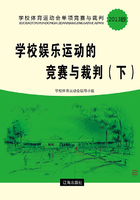But is there a thinking man in France who, in these circumstances, can persuade himself that the Constitution will march? Brunswick is stirring; he, in few days now, will march. Shall France sit still, wrapped in dead cerements and grave-clothes, its right hand glued to its left, till the Brunswick Saint-Bartholomew arrive; till France be as Poland, and its Rights of Man become a Prussian Gibbet?
Verily, it is a moment frightful for all men. National Death; or else some preternatural convulsive outburst of National Life;--that same, daemonic outburst! Patriots whose audacity has limits had, in truth, better retire like Barnave; court private felicity at Grenoble. Patriots, whose audacity has no limits must sink down into the obscure; and, daring and defying all things, seek salvation in stratagem, in Plot of Insurrection. Roland and young Barbaroux have spread out the Map of France before them, Barbaroux says 'with tears:' they consider what Rivers, what Mountain ranges are in it: they will retire behind this Loire-stream, defend these Auvergne stone-labyrinths; save some little sacred Territory of the Free; die at least in their last ditch. Lafayette indites his emphatic Letter to the Legislative against Jacobinism; (Moniteur, Seance du 18 Juin 1792.) which emphatic Letter will not heal the unhealable.
Forward, ye Patriots whose audacity has no limits; it is you now that must either do or die! The sections of Paris sit in deep counsel; send out Deputation after Deputation to the Salle de Manege, to petition and denounce. Great is their ire against tyrannous Veto, Austrian Committee, and the combined Cimmerian Kings. What boots it? Legislative listens to the 'tocsin in our hearts;' grants us honours of the sitting, sees us defile with jingle and fanfaronade; but the Camp of Twenty Thousand, the Priest-Decree, be-vetoed by Majesty, are become impossible for Legislative.
Fiery Isnard says, "We will have Equality, should we descend for it to the tomb." Vergniaud utters, hypothetically, his stern Ezekiel-visions of the fate of Anti-national Kings. But the question is: Will hypothetic prophecies, will jingle and fanfaronade demolish the Veto; or will the Veto, secure in its Tuileries Chateau, remain undemolishable by these?
Barbaroux, dashing away his tears, writes to the Marseilles Municipality, that they must send him 'Six hundred men who know how to die, qui savent mourir.' (Barbaroux, p. 40.) No wet-eyed message this, but a fire-eyed one;--which will be obeyed!
Meanwhile the Twentieth of June is nigh, anniversary of that world-famous Oath of the Tennis-Court: on which day, it is said, certain citizens have in view to plant a Mai or Tree of Liberty, in the Tuileries Terrace of the Feuillants; perhaps also to petition the Legislative and Hereditary Representative about these Vetos;--with such demonstration, jingle and evolution, as may seem profitable and practicable. Sections have gone singly, and jingled and evolved: but if they all went, or great part of them, and there, planting their Mai in these alarming circumstances, sounded the tocsin in their hearts?
Among King's Friends there can be but one opinion as to such a step: among Nation's Friends there may be two. On the one hand, might it not by possibility scare away these unblessed Vetos? Private Patriots and even Legislative Deputies may have each his own opinion, or own no-opinion: but the hardest task falls evidently on Mayor Petion and the Municipals, at once Patriots and Guardians of the public Tranquillity. Hushing the matter down with the one hand; tickling it up with the other! Mayor Petion and Municipality may lean this way; Department-Directory with Procureur-Syndic Roederer having a Feuillant tendency, may lean that. On the whole, each man must act according to his one opinion or to his two opinions; and all manner of influences, official representations cross one another in the foolishest way. Perhaps after all, the Project, desirable and yet not desirable, will dissipate itself, being run athwart by so many complexities; and coming to nothing?
Not so: on the Twentieth morning of June, a large Tree of Liberty, Lombardy Poplar by kind, lies visibly tied on its car, in the Suburb-Antoine. Suburb Saint-Marceau too, in the uttermost South-East, and all that remote Oriental region, Pikemen and Pikewomen, National Guards, and the unarmed curious are gathering,--with the peaceablest intentions in the world. A tricolor Municipal arrives; speaks. Tush, it is all peaceable, we tell thee, in the way of Law: are not Petitions allowable, and the Patriotism of Mais? The tricolor Municipal returns without effect: your Sansculottic rills continue flowing, combining into brooks: towards noontide, led by tall Santerre in blue uniform, by tall Saint-Huruge in white hat, it moves Westward, a respectable river, or complication of still-swelling rivers.
What Processions have we not seen: Corpus-Christi and Legendre waiting in Gig; Bones of Voltaire with bullock-chariots, and goadsmen in Roman Costume; Feasts of Chateau-Vieux and Simonneau; Gouvion Funerals, Rousseau Sham-Funerals, and the Baptism of Petion-National-Pike! Nevertheless this Procession has a character of its own. Tricolor ribands streaming aloft from pike-heads; ironshod batons; and emblems not a few; among which, see specially these two, of the tragic and the untragic sort: a Bull's Heart transfixed with iron, bearing this epigraph, 'Coeur d'Aristocrate, Aristocrat's Heart;' and, more striking still, properly the standard of the host, a pair of old Black Breeches (silk, they say), extended on cross-staff high overhead, with these memorable words: 'Tremblez tyrans, voila les Sansculottes, Tremble tyrants, here are the Sans-indispensables!'
Also, the Procession trails two cannons.















